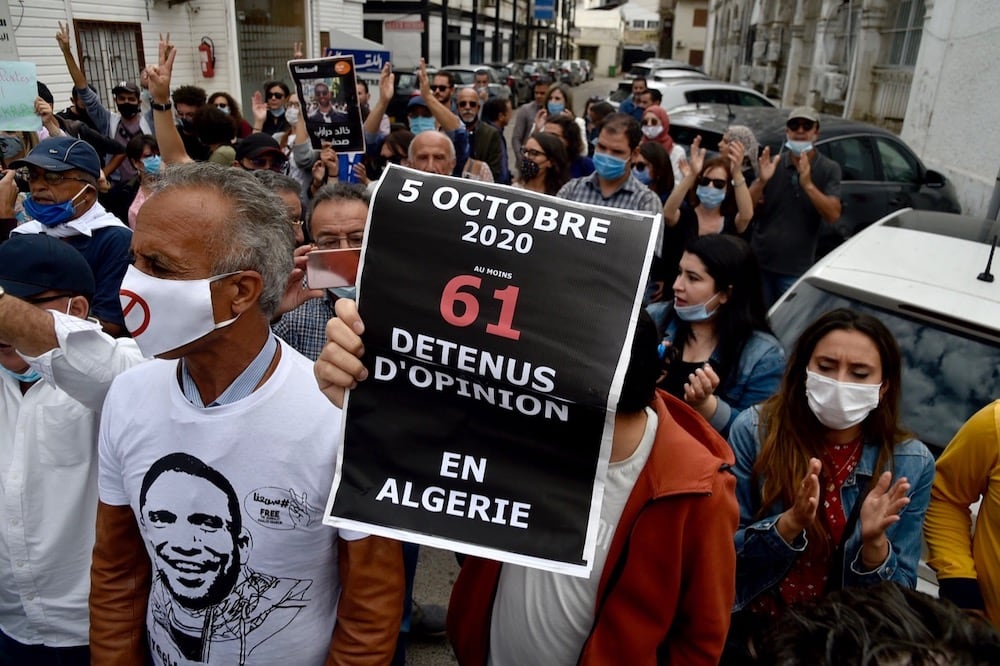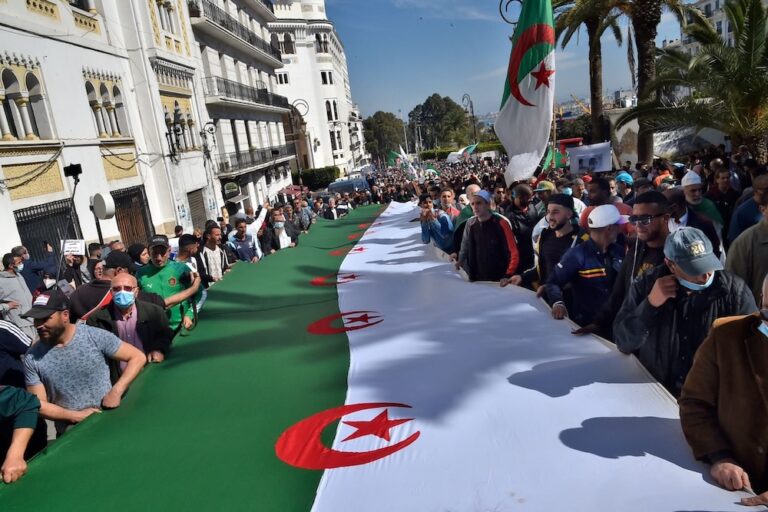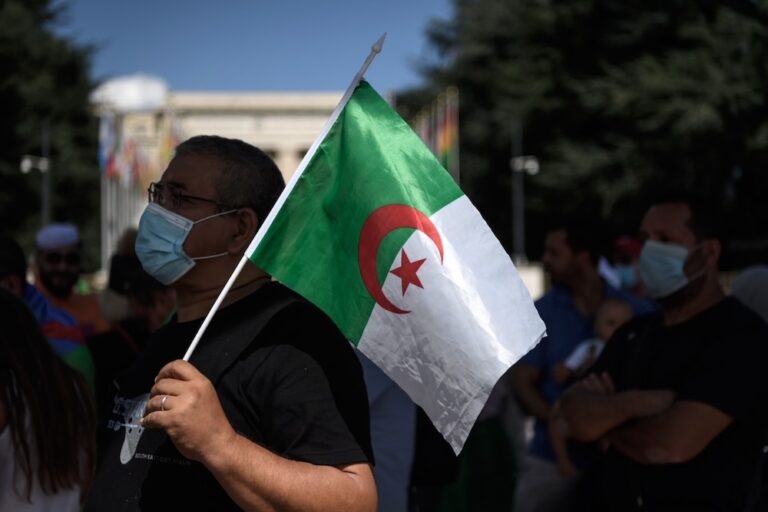Journalist's detention is the culmination of years of judicial harassment designed to silence two of the last Algerian media outlets still providing a free debate and criticism.
This statement was originally published on rsf.org on 29 December 2022.
By jailing Ihsane El Kadi, the director of Radio M and the Maghreb Émergent news website, on new charges that carry long prison sentences, the Algerian authorities are clearly making him pay for his critical reporting and for the independence of the media outlets he runs, says Reporters Without Borders (RSF).
After spending five days in police custody, Ihsane El Kadi was transferred to a criminal detention centre today, 29 December, on the orders of an investigating judge in the Algiers district of Sidi M’hamed. His lawyers said he has been charged under the law on fundraising and under articles 95 and 95b of the penal code on the funding of organisations that pose a threat to state security.
Article 95b provides for a prison sentence of five to seven years and a fine of 500,000 to 700,000 dinars for anyone who “receives funds, a gift or an advantage, by any means, from a state, an institution or any other public or private body or any legal or natural person, inside or outside the country, to perform or incite to perform acts likely to undermine the security of the state.”
Neither El Kadi’s lawyers nor his family so far understand the link that the authorities seem to be making between these charges and his journalistic work. His lawyers intend to appeal against his detention order, which should be examined within the next two weeks by an Algiers criminal court.
The detention order confirms the worst fears of his family and colleagues at Radio M and Maghreb Émergent, whose premises were closed and placed under seal by the authorities on 25 December. They see it as the culmination of years of judicial harassment designed to silence two of the last Algerian media outlets still providing a free debate and criticism.
“In placing Ihsane El Kadi in detention, the authorities have clearly decided to take their draconian, media-muzzling approach to its bitter conclusion, and to send a tough message to those who continue to defend the freedom to inform,” said Khaled Drareni, RSF’s North Africa representative. “This is a distressing and dangerous situation that can only further damage Algeria’s image.”
El Kadi’s arrest by security officials late on the night of 24 December sent a shock wave through the Algerian media and prompted many statements of support for the journalist from within Algeria and from abroad.
The security officials who raided and then closed his two media outlets in the centre of Algiers on 25 December removed all of their computer equipment and took it away in three vehicles.
Interrogated twice in late November
El Kadi had been summoned twice for questioning in the space of a week in late November, first by gendarmes and then by intelligence officials. RSF responded at the time with a press release calling on the authorities to end the harassment, which was clearly designed to silence this outspoken journalist.
He has been subjected to growing harassment by the authorities for years. On the eve of parliamentary elections in June 2021, he was detained for 30 hours on a range of charges that included “disseminating false information liable to endanger national unity,” “disrupting elections” and “reopening the issue of the national tragedy” – a reference to the 1992-2002 civil war.
Khaled Drareni, the journalist who is now RSF’s North Africa representative, and Karim Tabbou, a journalist who is a member of the opposition, were also detained at the same time.
In June of this year, El Kadi was sentenced to six months in prison on identical charges in connection with a separate case but remained free pending the outcome of a repeatedly postponed appeal hearing. His conviction and sentence were upheld when his appeal was finally heard on 25 December, the day after his arrest.
Harassment of journalists has increased dramatically in Algeria since the “Hirak” opposition movement emerged in February 2019.



